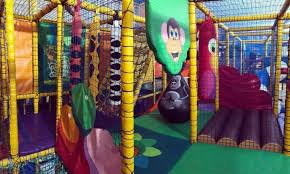
Exploring the Magic of Children’s Play: A Gateway to Growth and Learning
The Importance of Children’s Play
Play is an essential part of childhood development. It is not just a way for children to have fun, but it also plays a crucial role in their physical, emotional, and cognitive growth.
When children engage in play, they are actively exploring the world around them, learning new skills, and developing their creativity. Play allows children to express themselves freely, experiment with different ideas, and solve problems in a safe and supportive environment.
Through play, children develop important social skills such as cooperation, communication, and empathy. They learn how to interact with others, negotiate conflicts, and build relationships. Play also helps children build resilience and adaptability as they navigate different scenarios and challenges.
Physical play is vital for children’s overall health and well-being. It helps them develop gross motor skills, coordination, balance, and strength. Whether it’s running around outside, climbing on playground equipment, or engaging in sports activities, physical play is essential for keeping children active and healthy.
Imaginative play allows children to explore their creativity and expand their imagination. Whether they’re pretending to be superheroes saving the world or creating elaborate make-believe scenarios with friends, imaginative play fosters cognitive development and enhances problem-solving skills.
As parents and caregivers, it’s important to encourage and support children’s playtime. Provide them with a variety of toys, games, art supplies, outdoor spaces, and opportunities for social interaction. Remember that play is not just a leisure activity; it is a fundamental aspect of childhood that contributes to overall growth and development.
So let your child’s imagination soar through playtime – because every moment of fun is also a moment of learning!
Six Essential Tips for Enhancing Your Child’s Playtime: Fostering Creativity, Safety, and Social Skills
- Encourage imaginative play to help children develop creativity.
- Provide a variety of toys and games to keep playtime interesting.
- Allow children to engage in both independent and group play for social development.
- Create a safe play environment to prevent accidents or injuries.
- Limit screen time and encourage outdoor activities for physical exercise.
- Join in on the fun occasionally to bond with your child and show your support.
Encourage imaginative play to help children develop creativity.
Encouraging imaginative play is a wonderful way to nurture children’s creativity and foster their development. When children engage in make-believe scenarios, they are not only having fun but also honing their problem-solving skills, expanding their imagination, and building confidence. By providing opportunities for imaginative play, such as role-playing, storytelling, or creating imaginary worlds, parents and caregivers can support children in exploring their creativity and expressing themselves in unique and exciting ways.
Provide a variety of toys and games to keep playtime interesting.
To keep playtime engaging and stimulating for children, it is important to provide a diverse range of toys and games. Offering a variety of playthings allows children to explore different interests, develop new skills, and stay entertained for longer periods. From puzzles and building blocks to imaginative role-play sets and outdoor sports equipment, having a mix of toys and games ensures that children can choose activities that cater to their preferences and engage their creativity. By rotating toys regularly and introducing new ones, parents can keep playtime fresh, exciting, and full of opportunities for learning and discovery.
Allow children to engage in both independent and group play for social development.
Allowing children to engage in both independent and group play is crucial for their social development. Independent play encourages creativity, self-reliance, and problem-solving skills as children explore their interests at their own pace. On the other hand, group play teaches important social skills such as cooperation, communication, and teamwork. By striking a balance between independent and group play, children learn how to interact with others effectively while also developing a sense of individuality and autonomy. This holistic approach to play not only fosters social development but also nurtures well-rounded individuals who are confident in both independent pursuits and collaborative efforts.
Create a safe play environment to prevent accidents or injuries.
Ensuring a safe play environment is paramount in fostering a positive and secure space for children to explore and grow. By taking proactive measures to prevent accidents or injuries, such as removing potential hazards, supervising playtime, and providing age-appropriate equipment, caregivers can promote a sense of confidence and well-being in children’s play experiences. A safe environment not only encourages children to freely engage in activities but also allows them to develop essential skills without unnecessary risks, ultimately nurturing their physical and emotional development in a protected setting.
Limit screen time and encourage outdoor activities for physical exercise.
Limiting screen time and encouraging outdoor activities for physical exercise are crucial steps in promoting a healthy and active lifestyle for children. By setting boundaries on the amount of time spent in front of screens, such as TVs, computers, and mobile devices, parents can help children engage in more active play outdoors. Outdoor activities not only provide opportunities for physical exercise but also allow children to explore nature, develop their motor skills, and interact with their environment. Encouraging a balance between screen time and outdoor play can contribute to children’s overall well-being and foster a lifelong appreciation for physical activity.
Join in on the fun occasionally to bond with your child and show your support.
Joining in on the fun occasionally while your child plays is a wonderful way to strengthen your bond and show your support. By actively participating in their playtime activities, you not only create cherished memories together but also demonstrate that you value their interests and enjoy spending time with them. Whether it’s building a sandcastle at the beach, playing a board game indoors, or simply engaging in imaginative role-play, sharing these moments of play can deepen your connection with your child and foster a sense of closeness that will last a lifetime.



